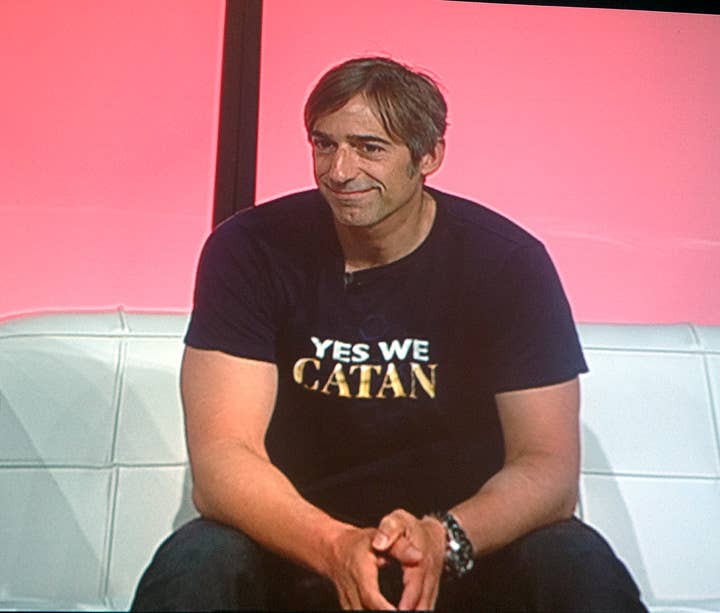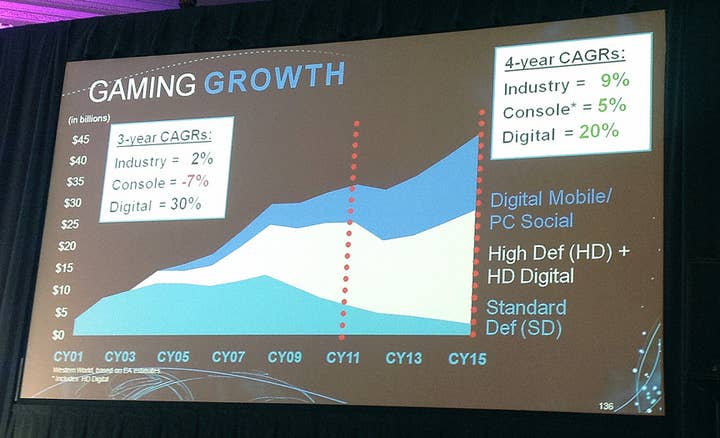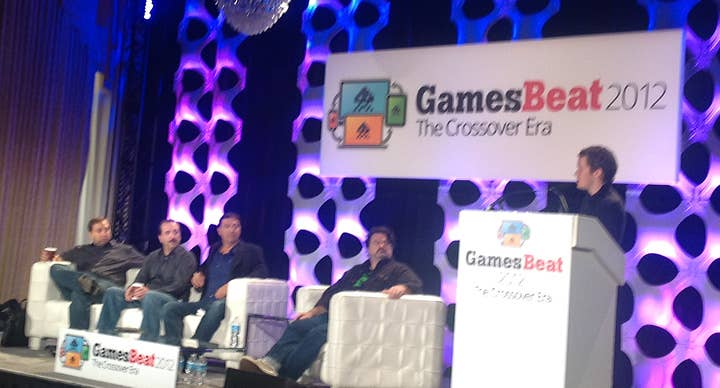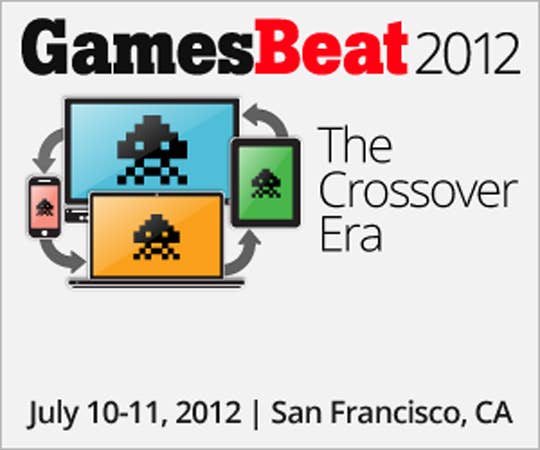GamesBeat 2012: Gaming in transition
Highlights of the conference
The two-day GamesBeat conference, put on in San Francisco by VentureBeat, brought together about 1,000 people from all types of game companies to find out the latest buzz and, of course, to network. There was a sense of high energy in the air, with people looking to understand how to navigate in the uncertain future of platforms, business models, and the vast expansion of gaming to cover all demographics and much more of the globe. Some of the highlights:
Matt Marshall, the CEO and Editor of VentureBeat, keynoted the conference on Tuesday, pointing out that change is spilling into all sectors of gaming; the focus of GamesBeat was managing the transition from one area to another. As an example of the vast changes that the industry has gone through, Marshall noted that in the past 5 years Apple has gone from a market valuation of twice Research In Motion (RIM), the Blackberry creators, to over 100 times their valuation. Apple's iPhone business is now larger than all of Microsoft. Those are massive changes, and they are still continuing.
"Wherever there is complete chaos, there is the biggest opportunity"
Kristian Segerstrale
GamesBeat lead writer Dean Takahashi interviewed Mark Pincus on stage, and Pincus noted that while Zynga feels confident investing as much as $10 million on a title for the web, they can't confidently make that sort of investment on a mobile title yet. Dean pointed out that The Ville took two years of development and $10 million, which is beginning to look a lot like console game budgets, which he characterized as 'scary.' Pincus responded that he found that level of investment exciting, not scary, and that now they can invest more in tools.

Kristian Segerstrale, Executive Vice President for Digital at Electronic Arts, took the stage to talk about how EA is fundamentally changing its business model to respond to current and future market changes. He noted that we've moved from a market of 300 million gamers to 2 billion gamers in the last few years, and that number is expected to double again in three to five years. EA feels that gaming not going o be platform-specific, but rather brand-centric; EA has re-organized itself along those lines. Segerstrale noted that FIFA is an example of how a traditional console game is becoming more of a digital title. FIFA has 5 million weekly active players, and more than 20% of the revenue from the latest version is from digital purchases. FIFA users spend between $150,000 to $300,000 per week on virtual goods. His parting comment: "Wherever there is complete chaos, there is the biggest opportunity."

Bing Gordon, the veteran who helped grow EA into a billion-dollar giant, is now a senior partner at venture capital firm Kleiner Perkins, as well as being a board member of Zynga, ngmoco, and Amazon, had an interesting observation: "This is a golden age for gamers, but I'm not sure it's a golden age for game businesses." Indeed, there were many companies at GamesBeat trying to help game companies analyze customer data, increase monetization, find players, and a host of other services that served to underscore the increasing complexity of the game business and how to make money at it.
"This is a golden age for gamers, but I'm not sure it's a golden age for game businesses"
Bing Gordon
Seamus Blackley, one of the creators of Xbox who is now putting together a mobile game startup featuring some of the veteran designers of classic Atari games, underscored the importance of gaming to hardware. "Plaforms without games fail; see Blackberry," Blackley said. Noting that Ouya had at that point raised well over $2 million in less than a day for its Android gaming console, Blackley said "If I was at Microsoft or Sony I'd be concerned looking at Ouya."

The crowdfunding panel featured Tim Schafer of Double Fine, Brian Fargo of InXile, Paul Trowe of Replay Games, and Jon Kimmich (author of the Crowd-Funding Bible). Their advice from the trenches was practical. Don't ask for anything less than you need, and don't make promises you can't deliver. What do you do when you get far more money than you ask for? Tim Schafer was quick with the answer: "We're in game development, so one of our skills is spending money. We don't have a problem getting rid of it." Crowdfunding is not easy, they cautioned, and once you launch the campaign expect to have a very, very busy month. "It's like a Jerry Lewis telethon," said Brian Fargo.
"We're in game development, so one of our skills is spending money"
Tim Schafer
One of the more illuminating discussions was with David Wallerstein, Senior Executive Vice President of Chinese giant Tencent, which has a market capitalization of over $52 billion dollars. Wallerstein has been with Tencent for 12 years, helping it grow form a tiny company to the powerfouse of instant messaging, social networks, and MMORPGs that it is today. Tencent has made headlines with its investments in Riot Games and most recently Epic Games. Arfe they looking for more investment opportunities? With the right companies, Wallersteing said. They see their mission as getting behind founders with a vision they agree with, and helping them achieve that vision. Not surprisingly, after his talk there was a rush of developers heading to the stage, eager to meet Wallerstein and perhaps become the target of their next investment.









